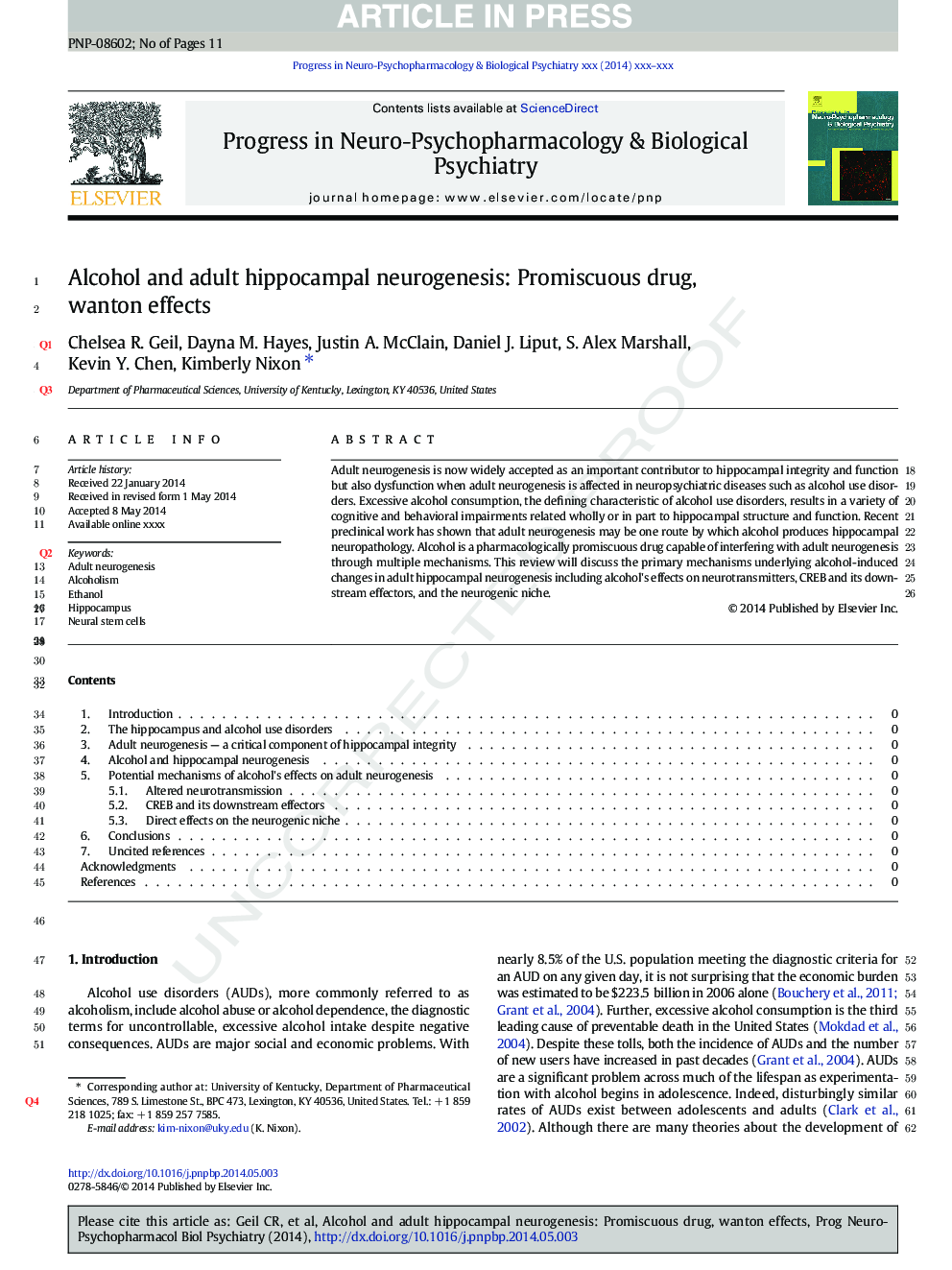| Article ID | Journal | Published Year | Pages | File Type |
|---|---|---|---|---|
| 5844351 | Progress in Neuro-Psychopharmacology and Biological Psychiatry | 2014 | 11 Pages |
Abstract
Adult neurogenesis is now widely accepted as an important contributor to hippocampal integrity and function but also dysfunction when adult neurogenesis is affected in neuropsychiatric diseases such as alcohol use disorders. Excessive alcohol consumption, the defining characteristic of alcohol use disorders, results in a variety of cognitive and behavioral impairments related wholly or in part to hippocampal structure and function. Recent preclinical work has shown that adult neurogenesis may be one route by which alcohol produces hippocampal neuropathology. Alcohol is a pharmacologically promiscuous drug capable of interfering with adult neurogenesis through multiple mechanisms. This review will discuss the primary mechanisms underlying alcohol-induced changes in adult hippocampal neurogenesis including alcohol's effects on neurotransmitters, CREB and its downstream effectors, and the neurogenic niche.
Keywords
IL-1βTGF-βcAMP-responsive element bindingNPCSGZFAAHTrkBIFN-γN-methyl-d-aspartateNMDAGCLIL-10CREBNPYNSCLPSPFCGFAPBECIL-6BDNFcAMPAudCyclic adenosine monophosphateEthanolAlcohol use disorderFatty acid amide hydrolasegamma-aminobutyric acidAlcoholisminterferon-gammaInterleukin-10interleukin 1βinterleukin 6Transforming Growth Factor BetaCNSblood brain barrierBBBNeural stem cellneural progenitor cellNeural stem cellscentral nervous systemblood ethanol concentrationBrain-derived neurotrophic factorprefrontal cortexgranule cell layerlipopolysaccharidesubgranular zoneadult neurogenesisHippocampusGlial fibrillary acidic proteinGABANeuropeptide Y
Related Topics
Life Sciences
Neuroscience
Biological Psychiatry
Authors
Chelsea R. Geil, Dayna M. Hayes, Justin A. McClain, Daniel J. Liput, S. Alex Marshall, Kevin Y. Chen, Kimberly Nixon,
